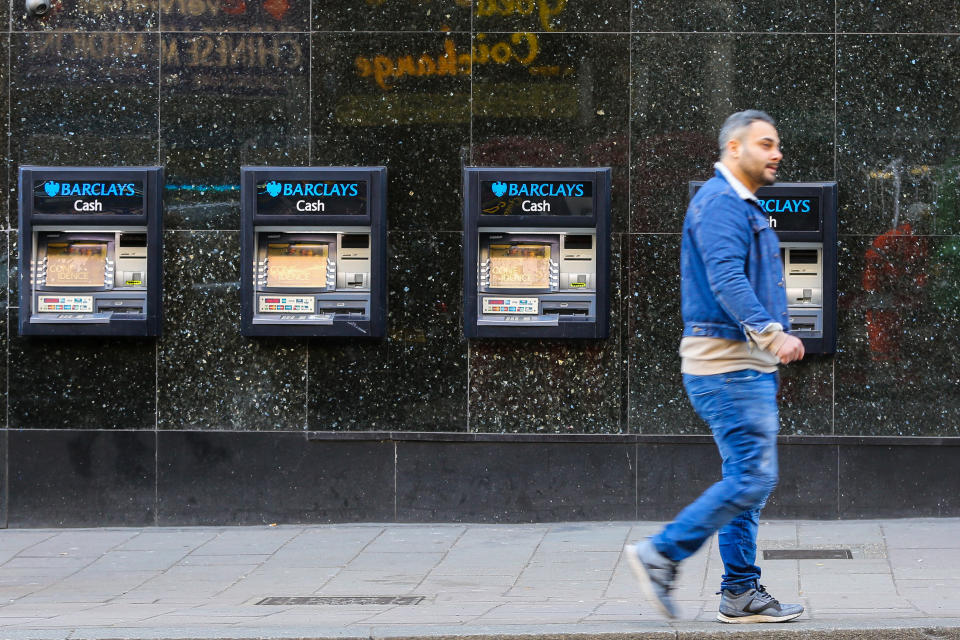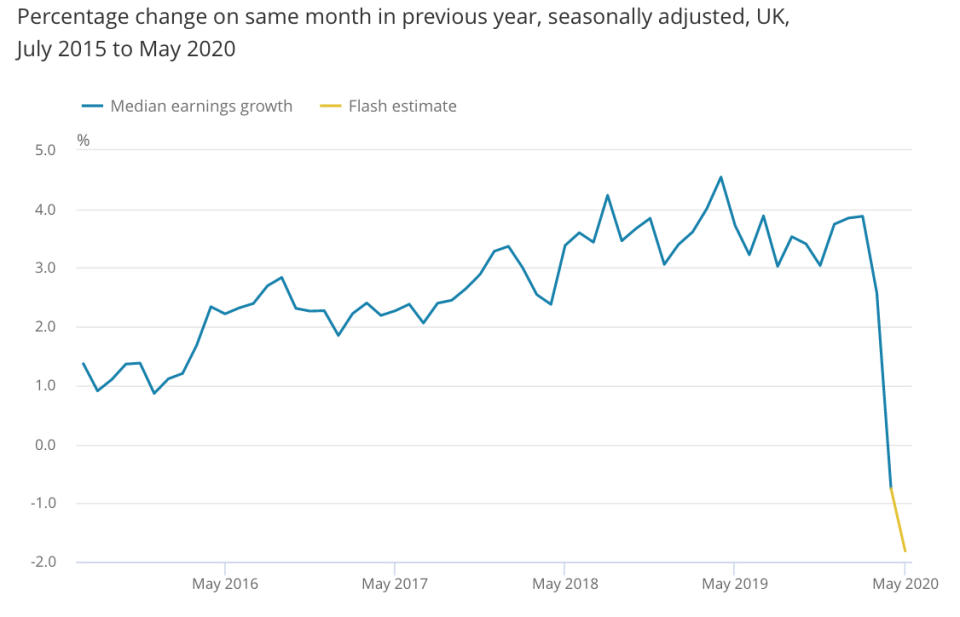Coronavirus: UK workers suffer steepest drop in pay in decades

Average pay for UK employees dropped at its fastest rate in at least two decades as the coronavirus crisis hit, official figures show.
Earnings slid at a record monthly rate in April as the pandemic and lockdown saw millions of workers placed on furlough, with many affected taking a 20% pay cut.
It pushed average weekly earnings down by £7 to £503 ($636) in April compared to the previous month, with the 0.9% decline the fastest since comparable records began in 2000.
More recent monthly pay data shows the median worker took home £1,778 in May, down 1.8% on a year earlier and the third month in a row that pay has declined.
READ MORE: UK employers have slashed 600,000 jobs since March
Average pay in real terms, taking inflation into account, has now gone into reverse for the first time in more than two years. Between February and April it declined to levels last seen in November 2018.
“Pay declined in industries where furloughing was most prominent, many of these being the lowest-paying industries, in particular accommodation and food service activities,” said the Office for National Statistics (ONS), which released the figures on Tuesday.

The ONS said much of the decline in average pay reflected falling bonuses. These were down 6.8% between February and April compared to a year earlier.
Pay levels have generally been increasing since mid-2015, as high employment has forced employers to pay more to attract and retain staff. The latest figures suggests the pandemic has brought this recent period of wage growth to an abrupt halt.
Pay has taken the biggest hit in construction, with manufacturing, retail, wholesale, hotels and restaurants also seeing real-terms declines in earnings.
READ MORE: MPs warn more than a million workers ‘locked out’ of coronavirus support
The release also provides some of the clearest data yet that the poorest workers appear to be taking the brunt of the crisis in earnings. “Those with the lowest pay levels have seen a fall in pay, in particular accommodation and food service activities.”
“Clearly this reflects the operation of the furlough scheme, with many of those on furlough reporting that they are taking home 80% of their pre-virus pay,” said George Buckley, chief UK economist at Nomura.

 Yahoo Finance
Yahoo Finance